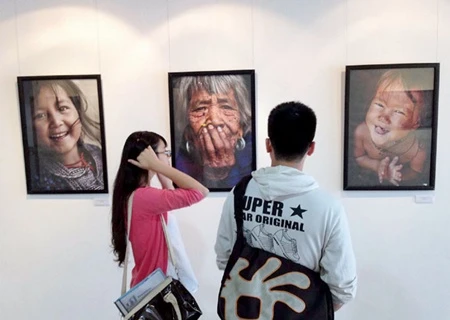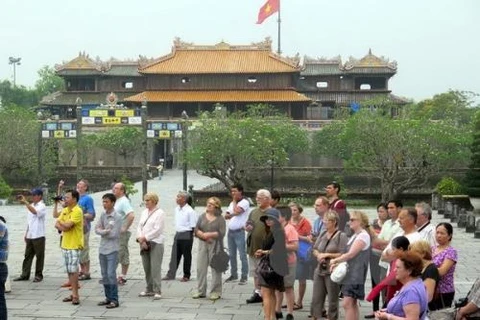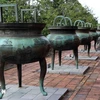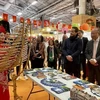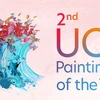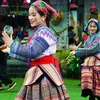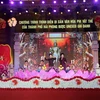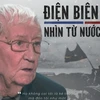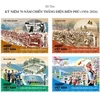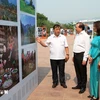Hanoi (VNA) – French photographer Rehahn recently re-leased a photobook titled Vietnam, Mosaic of Contrasts Vol 2, sending a message of "Come back to Vietnam" to foreign tourists.
The photobook was released following the success of his first photobook about Vietnam titled Vietnam, Mosaic of Contrasts introduced in 2014.
More than 4,000 copies of the first book were sold in 29 countries.
The new photobook includes 150 photos and is divided into four parts, featuring children, elders, lifestyles and landscapes.
The new book is available in Vietnam and 15 other countries, said the photographer.
The series of photo-books Vietnam, Mosaic of Contrast are like puzzles about the country, Rehahn said as he explained the name of his works.
The first book showed some pieces of the puzzle and the second showed more, he added.
"I want to continue representing Vietnam in more books, Vietnam cannot be explained in just one or two books," Rehahn told Vietnam News.
In the first book, there are many photos of tourist attractions, but the second is more about ethnic minorities in Vietnam, he said while describing the differences between his latest photobook and the previous one.
He said he read in the news that tourists coming to Vietnam often come once and do not return. Foreign tourists think they have seen all there is to see about Vietnam in a 15-day tour visiting famous places, he explained.
"This book is meant to show them that there is more to see. I want to show different parts of Vietnam," Rehahn said.
"I want to make people, who buy my book in France, Australia, the United States and other countries, curious about Vietnam and come back to see more incredible places."
Traditional costumes
Rehahn said that four years after settling down in Vietnam, he had developed a passion for the lives of the ethnic minority people.
However, he was worried about the disappearance of traditional costumes among these ethnic groups.
"Fewer and fewer ethnic people wear traditional costumes, I think it will disappear in the future," Rehahn said.
He narrated a story about meeting a 73-year-old Bo Y woman who was the last person to make the Bo Y traditional costumes.
She told him that young women do not want to learn how to make the costumes.
"When she dies, the costumes will disappear and there are only 1,000 people there," the worried photographer said.
The young are also no longer learning their own language but learning Vietnamese instead.
"I want to document these people, to take the last photos of them. My wish is to take photos of these people before the end of their culture," Rehahn said.
He has also bought and collected these costumes.
He said he would bring his photos and costumes to the 2016 Foire Interna-tionale de Caen, an international travel fair to be held in France in September.
The 10-day fair is expected to attract up to 200,000 visitors.
"My wish is to do a promotion of Vietnam," Rehahn said, adding, "As the authorities are promoting famous destinations like Hoi An, Ha Long Bay, etc. I want to show other parts of the country to interest people enough for them to come back because there is more to see in Vietnam."
Travel agencies should know that while Asian tourists love to enjoy landscapes, Western tourists are more interested in people and culture, the photographer explained.
He wished that Vietnamese travel agencies would organise tours to the areas where ethnic groups live.
"By doing that, travel agencies will have more customers, while the life of ethnic people will improve, and they will keep making traditional costumes because they know tourists love and want to see them," Rehahn said while suggesting a solution to help preserve the traditional costumes.
"It is not only good for the economy but also good for the culture and the future," the photographer emphasised.
"I want to make people realise that ethnic people are valuable to the country," he said.
To promote the book, Rehahn said he hoped to organise exhibitions in HCM City, Hoi An, Hue, Nha Trang, Hanoi and in other countries.-VNA

